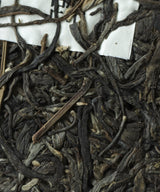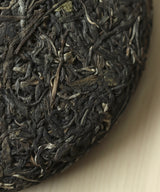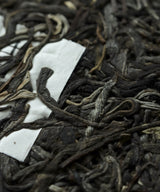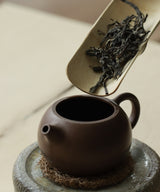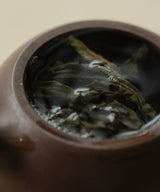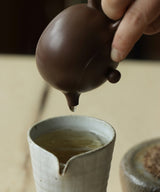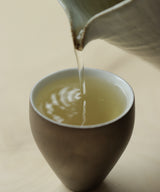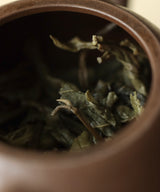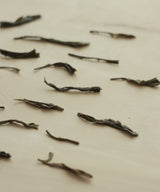Xigui 2019
昔归古树生普洱2019秋
Harvest
October 2019
Origin
Xigui Village, Lincang Prefecture, Yunnan
This Raw Pu’erh comes from the remote and historic mountain village, Xigui, of Lincang Prefecture. When I visited this village, at the foothill of Daxueshan 大雪山 (Big Snow Mountain), I drove for many hours, winding upwards between the peaks of this dense mountain range. The blue sky reflected in the water of the Lancang River below and, as I gained elevation, I could catch its shimmer coming through the banana and bamboo trees that lined the muddy roads. It occured to me that the mud of these narrow, tired roads was the same dark yellow colour it would have been one thousand years ago, when it was Tea Horse Road – the route used to transport tea to Tibet, Mongolia, and the emperor. Arriving in the village of Xigui, at 3200 ft above sea level, is like having unfolded the mountains to discover a secret they’ve been conspiring with the clouds to keep.
Our Xigui comes from the family of Zhang Tianwen, who have been inhabitants of these mountains for generations. The tea trees, at roughly 200 years old, grow on steep hills overlooking the valley and rivers beneath them. These trees are not very tall, nor do they appear very strong: I found them surprisingly delicate looking, mottled in the colour of their bark, and almost frail seeming. Their age is expressed in the moss and the fungi inhabiting their trunks, and their vitality, however discrete, is evident in the width of their branches and the abundance of their dark, shiny green leaves.
The name of the village, Xigui 昔归, is worth noting for how poetic it is. The first character, xi (昔) loosely translates to former times, or ‘the past’. The second character, gui (归), loosely translates to go back to, belong to, return to. The movement in this name is backwards, and also, in-to. It evokes familiar and stabilizing sensations: of belonging, and of the endurance we experience in our childhood and adolescence.
Wet, in a gaiwan, the leaves of this tea are dark, with a slight sheen, and notably fragrant. The sustained vividness of these leaves as they progress through many infusions invites us to consider something about how the past carries forward: memories that remain generous and vibrant, and that we are continually nourished by whenever we recall them.
In this way Xigui is a fortifying tea, as it strengthens and supports us as we follow it through progressive infusions. It is also a transportive tea: it moves us backwards, and in-to. We drink this tea when we would like time to reflect, when we would like the sensation of reflection, and the encouragement to integrate experience.
. . .
Brewing guide
| Tea | 4 g |
| Temperature |
100°C |
| Water | 120 ml |
| Steep time | 10 - 60 sec |
| No. of infusions | 10 |

